6. The Fighter (David O. Russell, 2010)
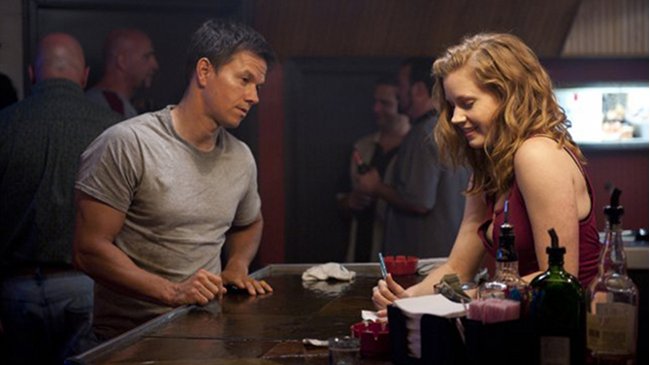
On the surface, “The Fighter” was a boxing drama akin to “Rocky” and “Raging Bull”, but it also signified a new phase in director David O. Russell’s career. Before “The Fighter”, Russell had mostly made comedy films, such as “Flirting With Disaster”, “I Heart Huckabees”, and the abandoned film “Nailed”. It was his excellent war film “Three Kings” that is the closest of Russell’s older films that would indicate what his future films had in store for audiences.
Russell moved away from wacky comedy films that audiences had mixed feelings about and had average box office returns to focus on prestigious drama films that were very profitable. All of Russell’s film ever since were nominated for or even won Oscars. “The Fighter” had all-around great acting, including Oscar-winning performances from Christian Bale and Melissa Leo.
Russell himself has been nominated for the Best Director Oscar for “The Fighter” and his following films, “Silver Linings Playbook” and “American Hustle”, although he has yet to win the coveted award. Perhaps drama is more Russell’s forte than comedy, as the results speak for themselves.
7. Planet Of The Apes (Tim Burton, 2001)
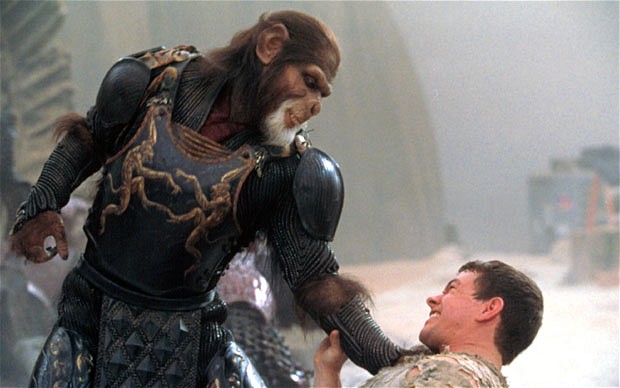
Despite his amazingly dark visuals, there is no denying that Tim Burton has always been a commercial filmmaker. That is not a criticism, but with having made two ‘Batman’ films and many other hit movies, Burton is very Hollywood. But his unique and gothic visuals gave Burton a great reputation and critical acclaim.
Thus, it was an odd choice to have Burton direct the “Planet of the Apes” remake that was released in 2001. Burton’s films are known for their whimsical and gothic characters and sets; none of those things are present in his version of the 1968 original. In fact, it would be understandable for the uninitiated to think this film was made by the likes of Michael Bay rather than the man who made “Beetlejuice” and “Ed Wood”.
After “Planet of the Apes”, Burton made more commercial films, many of them being other remakes, such as “Charlie and the Chocolate Factory”, “Alice in Wonderland”, and “Dark Shadows”. Although these films contained some of Burton’s older visual cues, they still felt more commercial than anything he made in the 20th century, therefore usually inferior and without the charm of his older films.
8. Serial Mom (John Waters, 1994)
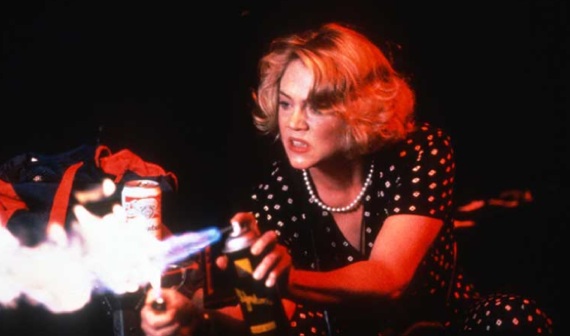
John Waters made gross-out comedies throughout the 1970s and most of the 1980s that made him a hit in the midnight movie scene. No one could possibly forget the disgusting things that happened in his debut feature film “Pink Flamingos”.
However, in 1988, seven years after he made his previous feature film Polyester, Waters made a clean-cut musical called “Hairspray”. It was a family-friendly musical with societal commentary on race relations that was a commercially successful film. This was the start of Waters’ more commercial films, but maintaining some of his distinct trademarks, such as certain actors appearing in these films and references to the 1950s and 1960s.
But Waters’ filmmaking style changed even more with “Serial Mom”, where a suburban housewife and mother is a serial killer. Besides being a black comedy about murder and family life, it is also a satire on society’s ills and the media’s fascination and glorification of serial killers, much like the Oliver Stone film “Natural Born Killers”, which was also released in 1994.
This trend of poking fun at society continued with Waters’ 1998 film “Pecker” that satirizes the pretentious art world, something Waters is sure to relate to, considering his earlier lowbrow work would have been frowned upon by critics. Then in 2004 Waters made “A Dirty Shame” about how scared and conservative society is about sexual freedom.
What is interesting is that “A Dirty Shame” is both a throwback to Waters’ gross-out sex comedies from the 1970s while also continuing his current critique of society. In any case, Waters was not afraid to point out the hypocrisy of society, while also still using toilet humor for laughs.
9. Thor (Kenneth Branagh, 2011)
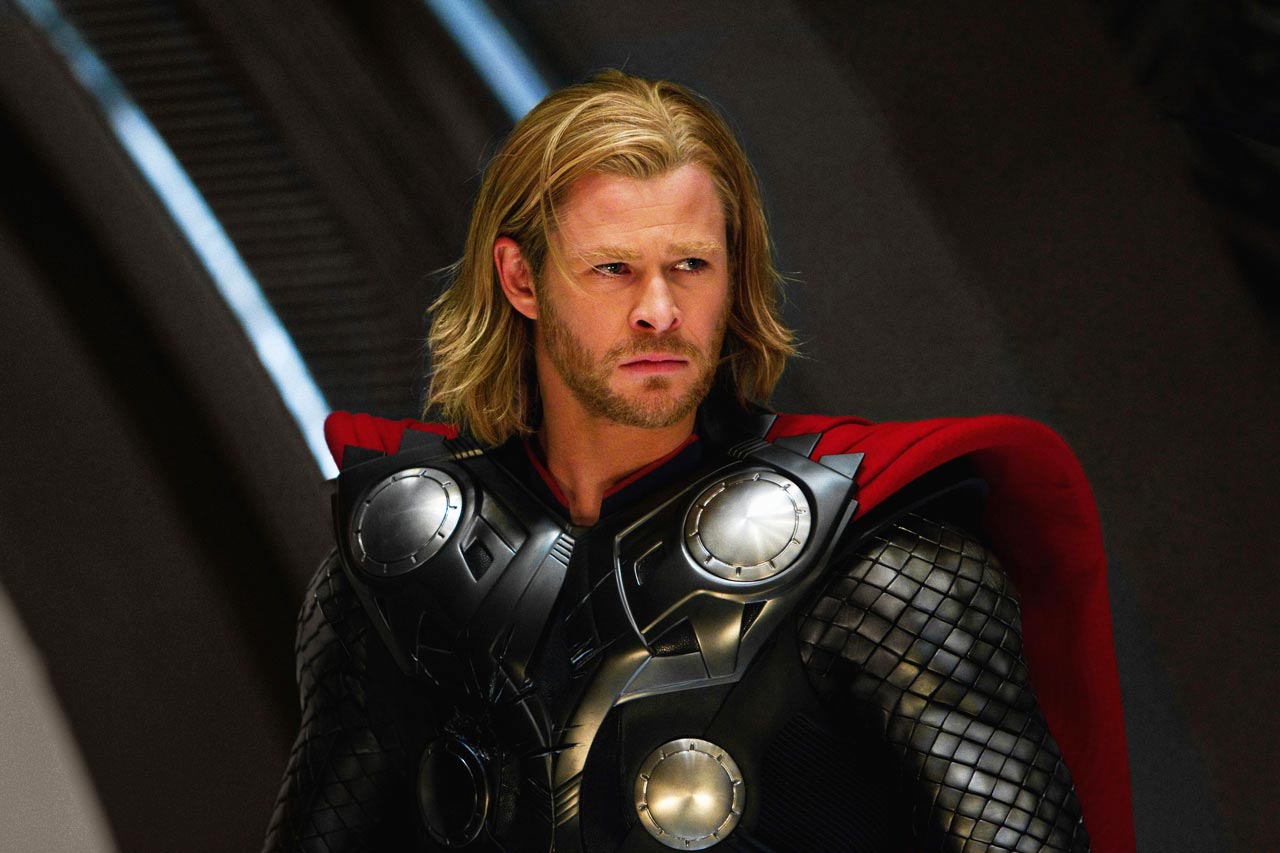
When people think of Irish actor and director Kenneth Branagh, they normally think of the prestigious, historical, Shakespearian, and very British films like “Henry V”, “Much Ado About Nothing”, “Mary Shelley’s Frankenstein”, and “Hamlet”. Three of those films are adapted from Shakespeare’s plays and all are set between the 1400s-1800s, making Branagh’s films quite distinct.
Out of those aforementioned films, “Frankenstein” would be the only indicator that Branagh had any interest in making films about fantastical beings like monsters and superheroes, which came into fruition in 2011 when he made “Thor”. The news of Branagh directing a superhero blockbuster as part of the Marvel universe came as a huge surprise to both fans of the franchise and fans of Branagh’s who may have felt a Marvel film was too commercial for him and not suited to his usual sensibilities as a director.
However, despite having a lot of CGI and explosions, the plot of “Thor” is actually akin to Branagh’s previous films. It has a very Shakespearian tale of the son of a king who must face his foes who seek to dethrone him and his father for their own power. The usual Branagh themes of betrayal, clashing family members, redemption, and regal sophistication are all present here.
Since making “Thor”, Branagh has more made action blockbusters like the spy thriller “Jack Ryan: Shadow Recruit” and the fantasy film “Cinderella”, indicating a leaning toward making commercial films.
10. Man on Fire (Tony Scott, 2004)
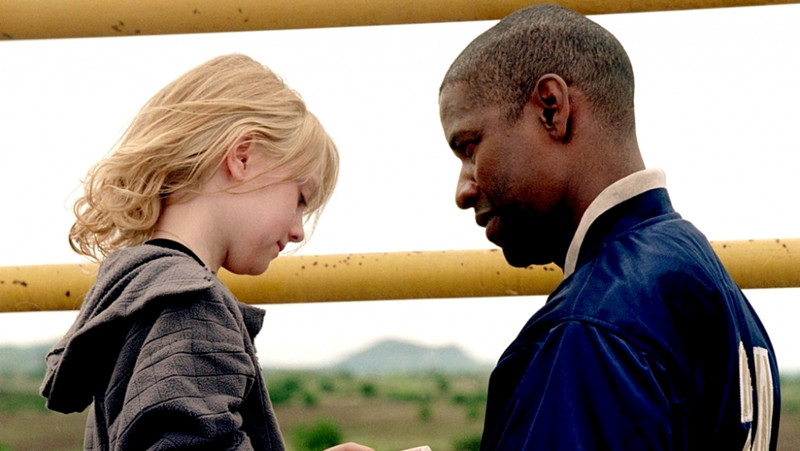
It is interesting to note that Tony Scott was an art student and his first feature film is the arthouse vampire film “The Hunger”; it is unlike any other film Scott ever made. Its failure at the box office is probably what made Scott decide to make more commercial films for most of his career.
He then starting making mainstream action blockbusters like “Top Gun” and “Beverly Hills Cop II” in the 1980s that had the slickness of the type of commercials Scott was known for in that decade, but were very entertaining and profitable commercials nonetheless.
The 1990s saw Scott make more action films with Scott’s distinct touch, such as “Days of Thunder”, “The Last Boy Scout”, “True Romance”, and “Enemy of the State”. Scott’s previous films were fast paced and action packed, but overall most of them were generic action films. Although his first film of the 2000s was “Spy Game”, it was with his 2004 film “Man on Fire” that he seemed to go back to his art school originals and his filmmaking style changed.
The plot of “Man on Fire” is straightforward in that a jaded bodyguard vows to avenge the apparent death of the little girl he was supposed to protect. The disorientating fast cuts and use of cross-processing and photochemically manipulated film stock heightened the colors on screen, and displayed the rage and anger the protagonist feels against the villains.
“Man on Fire” contained on-screen subtitles of keywords characters said for emphasis, adding to the feel of the danger or urgency of the situation, especially in the nightclub scene where the protagonist is torturing someone for information, and the pumping dance music is perfectly used here. The faces of the actors would look smeared and blurred, then go to black and white, and then back again just as fast, adding to the intensity and madness of the situation on screen.
This trend continued into an even more frenzied state with “Domino”. It was produced by Scott’s own company Scott Free, giving him free reign to make the film as he pleased. It is a very visual film that gives the mind a stimulus overload and the cinematic equivalent to ADHD. Perhaps its poor performance at the box office led Scott to tone down these visuals as he did with his last three films “Déjà Vu”, “The Taking of Pelham 123”, and “Unstoppable”, the latter of which had none of these bizarre visuals.
Author Bio: Matt Wilson is a professional writer from Melbourne, Australia. His passion for cinema has always been a part of him and he aspires to be a screenwriter or a novelist. He particularly enjoys the films of Michael Cimino, Oliver Stone, Stanley Kubrick, Paul Verhoeven, David Lynch and Quentin Tarantino.